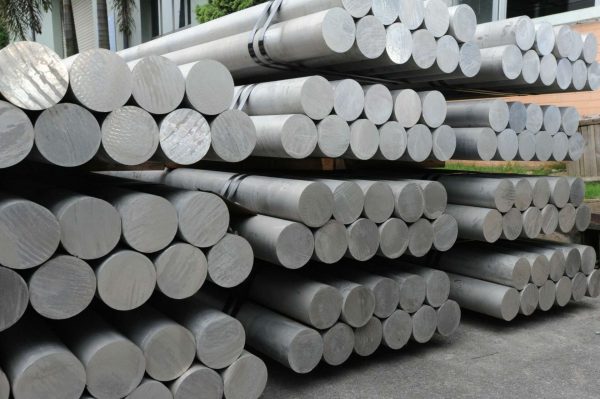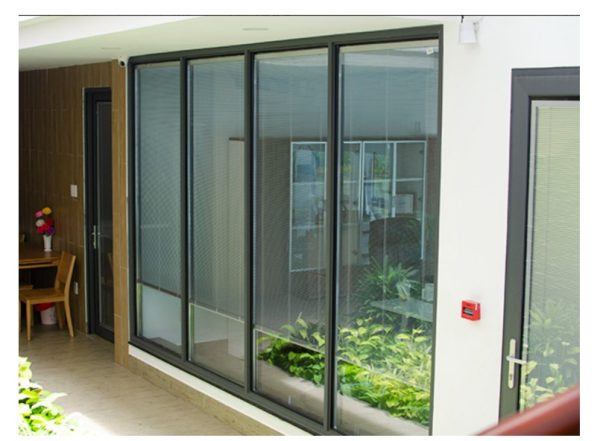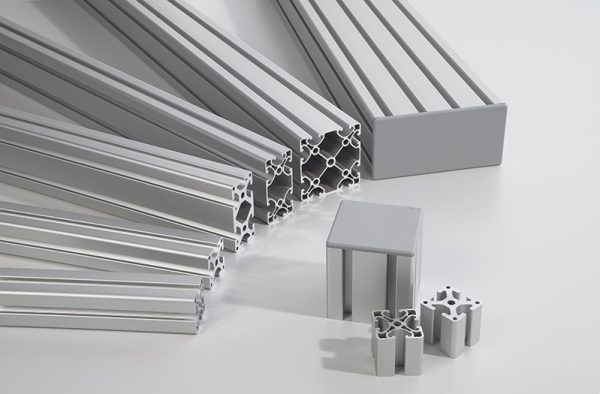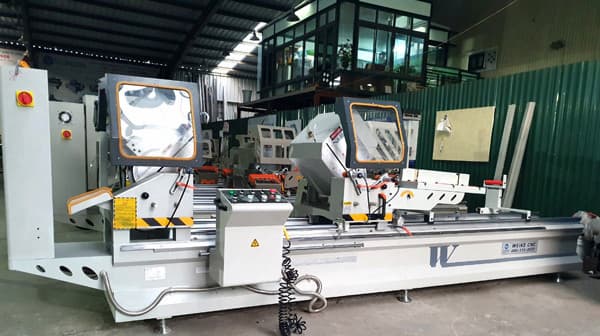Currently, the demand for aluminum machining is increasing as aluminum is used in a variety of industries in daily life. So, what products can aluminum be machined into for daily life? How are the properties of aluminum applied? What experiences should be considered when choosing an external machining partner for a business? Let’s explore with Loval through the article below to learn more valuable information.
1. What is Aluminum?
Aluminum is a material widely used in modern industrial production across various industries. Firstly, aluminum is a silver-colored metal, and when treated on the surface, it produces a shiny finish suitable for many applications, ranging from household products to aerospace and military industries. Due to its lightweight, durability, and high ductility, it is suitable for various machined products and is flexible in terms of transportation.
Aluminum is a non-magnetic metal and does not catch fire under normal conditions. The melting point of pure aluminum is about 660°C, with a density of 2.70 g/cm³.

2. Advantages of Aluminum in Modern Industrial Production
In modern manufacturing, aluminum plays a very important role in various industries. Some irreplaceable characteristics of aluminum in industrial production include:
2.1 Lightweight
Aluminum is lighter than other metals such as iron or steel, which helps reduce weight in production, transportation, and installation. This optimizes the material usage in construction and manufacturing.

2.2 High Corrosion and Oxidation Resistance
When aluminum is surface treated, it forms a natural oxide layer, creating a protective film that allows the aluminum to remain durable in many harsh environments. This property helps aluminum resist chemicals, humidity, and environments with high corrosion levels. This allows aluminum to be used to create precision mechanical parts for harsh environments.
2.3 Easy to Machine and Manufacture
In practice, pure aluminum is rarely used independently as it is too soft. Instead, aluminum is often alloyed with other metals to form alloys, which enhance hardness, ductility, and load-bearing capacity. Each type of aluminum alloy is suited for a specific application. Whether in its pure form or as an alloy, aluminum is considered easier to machine than many other metals due to its light weight and high flexibility.
2.4 High Recyclability of Aluminum
Aluminum stands out not only for its mechanical properties but also for its high recyclability, with the process consuming less energy. Notably, when aluminum is recycled, there is no change in its properties. Moreover, this process reduces the need for new mining, limits pollution, and minimizes environmental impact. Due to its recyclability, aluminum is considered a “green” material that reduces environmental pollution. Therefore, aluminum has been widely used across industries today and reflects the modern green lifestyle.

3. Applications of Aluminum in Mechanical Manufacturing
Aluminum is widely used across various industries based on its essential properties for each sector. Some specific applications include:
3.1 In the Industrial Sector
Aluminum is important for manufacturing parts and components such as conveyors, racks for goods, machine frames, cooling systems, machine bases, and more.
3.2 In the Energy Industry
Aluminum is widely used in making supports, frames for wind turbines, and more. It is favored in the energy sector because of its high durability, resistance to extreme weather conditions, and light weight, which makes it easy to transport to elevated areas.
3.3 In the Transportation Industry
For Automobiles: Aluminum, being lightweight, is used in manufacturing car parts to significantly reduce weight, thus lowering energy consumption while operating the vehicle. For this reason, aluminum is used in parts such as radiators, car frames, hoods, gearboxes, engine cylinders, suspension systems, and wheels.
For Aerospace: In the aerospace industry, aluminum and aluminum alloys make up about 70% of the materials used in aircraft construction, particularly in the body, wings, and structural components. Thanks to its lightweight, corrosion resistance, and ease of machining, aluminum helps reduce overall weight, saving fuel while ensuring strength under extreme conditions.
For Maritime Transport: Aluminum is used in constructing boat hulls and related parts, due to its excellent corrosion resistance, making it suitable for maritime transport.
3.4 Applications of Aluminum in Healthcare
Aluminum is a lightweight, durable, and non-toxic metal that is commonly used in healthcare applications due to its corrosion resistance and ease of machining. Aluminum is used to make prosthetic limbs such as arms and legs, improving the quality of life for disabled individuals. Additionally, aluminum is found in various modern medical devices such as ventilators, heart rate monitors, medical carts, operating room lift systems, surgical tool handles, and stethoscopes, enhancing diagnosis and treatment efficiency.
3.5 Aluminum Applications in Daily Life
Furniture: With its refined surface and ability to be easily machined into various shapes, aluminum is used for interior décor and household items such as cabinets, chairs, tables, frames, lighting fixtures, and decorative CNC walls.
Household Appliances: Due to its excellent thermal conductivity, aluminum is widely used in producing household appliances such as meat grinders, baking pans, cake molds, kitchen cabinets, clothes hangers, storage shelves, and aluminum basins and spoons.
Additionally, aluminum is used in manufacturing satellite covers due to its excellent radiation absorption capability. The excellent heat dissipation, light weight, durability, and thinness of aluminum are also applied in the production of modern flat-screen TVs.

4. Comparing Aluminum with Other Materials in Mechanical Machining
Aluminum is a standout material in mechanical machining due to its light weight, ease of machining, and excellent corrosion resistance. Compared to steel, aluminum is much lighter, with a density of about 2.7 g/cm³ compared to steel’s 7.85 g/cm³, helping reduce the overall weight of products and saving fuel in applications like automotive and aerospace. Aluminum is not only easily shaped but also highly durable when fabricated into alloys such as 6061 and 7075.
In contrast, copper has better electrical conductivity but is heavier, with a density of about 8.96 g/cm³, and is more prone to oxidation, forming a patina on its surface. Titanium, although having high strength and excellent corrosion resistance, has high production costs and is typically used only in special applications requiring strength and light weight. Overall, aluminum is often the ideal choice for modern mechanical products due to its excellent balance of features, cost, and design flexibility.
5. Tips for Choosing a Reliable Machining Partner
To create aluminum products, the machining process, including extrusion, milling, drilling, and turning, is essential. Aluminum machining is a solution for modern industrial production and plays a critical role in many products.
When businesses need to choose a machining partner to fabricate aluminum, selecting a reliable partner is crucial. The risks involved in outsourcing machining can be significant and may result in substantial losses for a company in various aspects. Some potential risks include late deliveries, incorrect sizes, incomplete orders, and lack of warranty after delivery, all of which can harm the hiring party’s reputation and cause operational difficulties.
Therefore, it is important to carefully consider these risks when selecting a machining partner. Factors to consider include experience, capacity, the ability to meet order requirements, previous orders completed, and product standards.
To ensure quality and avoid risks, selecting a reputable machining company is essential. Loval, part of Long Vân Group, is proud to be a leading aluminum machining partner with over 30 years of experience, specializing in manufacturing according to ISO 9001:2008 and JIS H4100 standards from Japan.
With a professional team, a 30,000 m² factory, and a stringent quality control system, Loval guarantees:
Fast, accurate order fulfillment
Stable product quality meeting international standards
On-time delivery with full quantities
Loval has been and continues to be a trusted partner for many businesses both domestically and internationally.
For detailed advice on Long Vân aluminum products, please call us or visit our office for direct consultation and support.
Hotline: (+84) 902.770.886
Website: https:/longvangroup.com/
Office: 299/4 Ly Thuong Kiet, Ward 15, Phu Tho ward, Ho Chi Minh city.
Fabrication Factory: 76 Binh Duong avenue, Lai Thieu ward, Ho Chi Minh city.
Manufacturing Factory: 31 Tu Do Boulevard, VSIP, An Phu ward, Ho Chi Minh city.





